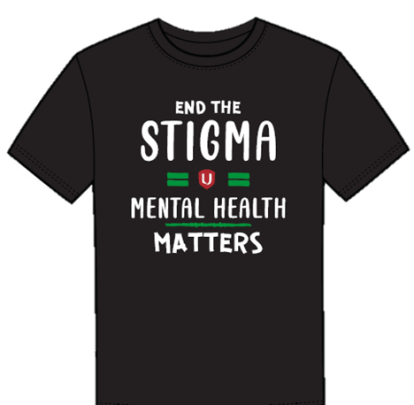
Share
Mental health is just as important as our physical health. In any given year, 1 in 5 Canadians experiences a mental illness. By the time Canadians reach 40 years of age, 1 in 2 have – or have had – a mental illness.
Mental Health Awareness Week will take place May 1-May 7, as part of a national campaign by the Canadian Mental Health Association.
The Ontario Regional Council Employee & Family Assistance Program (EFAP) Standing Committee is working to raise awareness of the importance of mental health, both on the job and in our personal lives, and to eliminate the stigma surrounding mental health.
Earlier this year, the Ontario EFAP committee promoted the sale of a Unifor End the Stigma t-shirt. The response was tremendous. Those who purchased the t-shirt are asked to wear it throughout the week of May 1st to show your support.
Take a photo of you wearing your shirt or holding a print-out of the graphic and share it with @email.
Download the graphics here.
*Please note the order deadline has now passed.
OHS Committees Take Action!
Hand-in-hand with awareness is access to information on prevention.
No workplace is immune from mental injury hazard. That is why our definition of occupational health and safety cannot be limited to physical well-being only; it must include mental well-being as well.
With most adults spending more of their waking hours at their workplace than anywhere else, addressing issues of mental health on the job is crucially important.
Together, we must keep this responsibility to ourselves and to our co-workers in mind during any work activity.
Ensuring a psychologically healthy workplace (a workplace that promotes workers' psychological well-being and actively works to prevent harm to worker psychological health) is a key function of Occupational Health and Safety Committees (OHSC).
Just like any other hazard at workplace, OHS Committees need to recognize, assess, control, evaluate, review, adjust, monitor and maintain the program.
OHSC’s need to use the National Standard of Canada for Psychological Health and Safety in the Workplace (the Standard) which identifies psychosocial risk factors (workplace factors).
No Unifor member is alone. You can access information on mental health or addiction and substance abuse here.
Additional Resources:
Mental Health Commission of Canada
An Action Guide for Employers: http://www.mentalhealthcommission.ca/English/media/3050
Mental Health First Aid: https://www.mentalhealthfirstaid.ca
Canadian Centre for Occupational Health and Safety (CCOHS)
Health and Safety Fact Sheets for Mental Health
https://www.ccohs.ca/topics/wellness/mentalhealth/
Courses and E-Learning (some are free!)
https://www.ccohs.ca/topics/wellness/mentalhealth/#ctgt_wb-auto-4
Workplace mental health posters
https://www.ccohs.ca/topics/wellness/mentalhealth/#ctgt_wb-auto-5
Occupational Health Clinics for Ontario Workers (OHCOW)
Mental Injury Prevention Tools –Copenhagen Psychosocial Questionnaire (COPSOQ) http://www.ohcow.on.ca/edit/files/mip/UsingCOPSOQ.pdf
StressAssess.ca -Workplace and Personal Editions (COPSOQ III, Canadian data) https://stressassess.ca



